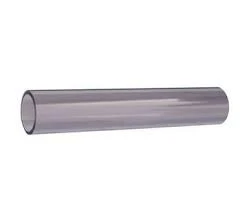Dec . 25, 2024 08:10 Back to list
hdpe irrigation pipe
The Advantages of HDPE Irrigation Pipes A Sustainable Solution for Agriculture
In the ever-evolving world of agriculture, farmers are constantly seeking innovative methods to maximize yield while minimizing environmental impact. One such advancement is the adoption of High-Density Polyethylene (HDPE) irrigation pipes. These pipes have gained popularity in agricultural practices due to their numerous benefits, including durability, flexibility, and cost-effectiveness. This article delves into the advantages of HDPE irrigation pipes and their role in sustainable agriculture.
What is HDPE?
High-Density Polyethylene is a thermoplastic polymer made from petroleum. It is known for its high strength-to-density ratio and is widely used in various applications, including piping systems. HDPE is resistant to a wide range of chemicals and is capable of withstanding various environmental conditions, making it an ideal choice for irrigation systems.
Durability and Longevity
One of the primary benefits of HDPE irrigation pipes is their exceptional durability. Unlike traditional materials such as steel or PVC, HDPE is resistant to corrosion, rust, and pinholes, which can compromise the integrity of irrigation systems. This durability translates into a longer lifespan, reducing the need for frequent replacements and maintenance. Farmers can trust that their irrigation systems will function effectively for many years, even in harsh conditions.
Flexibility and Ease of Installation
HDPE pipes are remarkably flexible, allowing them to be easily installed in various terrains. This adaptability means that they can be bent and shaped to accommodate the contours of the land without compromising functionality. Installation of HDPE pipes is typically quicker and requires fewer fittings compared to rigid piping systems. Overall, this flexibility not only reduces labor costs but also minimizes disruption to the surroundings during installation.
hdpe irrigation pipe

Cost-Effectiveness
Although the initial investment in HDPE irrigation technology may be slightly higher than traditional methods, the long-term savings are significant. The durability and reduction in maintenance needs lead to lower operational costs over time. Additionally, HDPE pipes are lightweight, reducing transportation costs and making them easier to handle during installation. This cost-effectiveness combined with their longevity makes HDPE pipes a financially prudent choice for farmers.
Water Efficiency
In an era where water scarcity is becoming increasingly prevalent, efficient irrigation systems are essential. HDPE pipes allow for precise water delivery to crops, minimizing waste and maximizing the utilization of water resources. The smooth interior surface of HDPE pipes promotes efficient flow, reducing the energy required for pumping water. By adopting HDPE irrigation systems, farmers can achieve remarkable reductions in water consumption, contributing to sustainable agricultural practices.
Environmental Considerations
The use of HDPE irrigation pipes also aligns with environmental sustainability. Made from recyclable materials, HDPE can be repurposed at the end of its life cycle, thus reducing landfill waste. The energy-efficient nature of HDPE piping systems further supports water conservation, ultimately benefiting ecosystems. Farmers are increasingly adopting methods that not only enhance productivity but also uphold their responsibility towards environmental stewardship.
Conclusion
As the agricultural sector faces pressures from climate change, population growth, and limited natural resources, the need for efficient and sustainable irrigation solutions becomes paramount. HDPE irrigation pipes stand out as a robust and reliable solution that addresses these challenges effectively. With their durability, flexibility, cost-effectiveness, and water efficiency, HDPE pipes provide a pathway for modern agriculture to thrive while minimizing environmental impact. As more farmers embrace this technology, the hope is for a future where agriculture coexists harmoniously with nature, ensuring food security for generations to come. The transition to HDPE irrigation systems represents not only an investment in productivity but also a commitment to sustainable farming practices.
-
Durable PP Rigid Sheet: Lightweight, Chemical Resistant Solutions
NewsAug.21,2025
-
PVC Grey Sheet for Extraction: Chemical Resistant & Durable
NewsAug.19,2025
-
Durable PVC Pipe Fittings for Plumbing & Irrigation Needs
NewsAug.18,2025
-
HDPE Steel Belt Reinforced Spiral Corrugated Pipe | High Strength
NewsAug.17,2025
-
HDPE Pipe Fittings: Durable, Leak-Proof Solutions
NewsAug.16,2025
-
Premium CPVC Sheet: High-Temp & Chemical Resistant Solutions
NewsAug.15,2025

